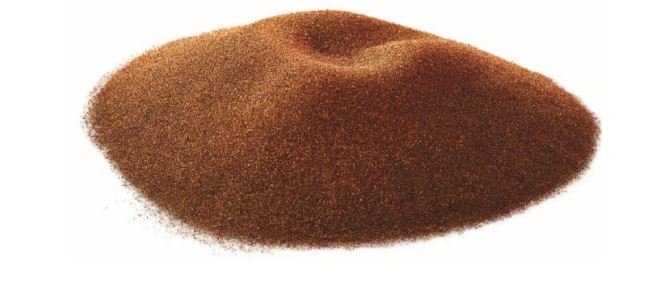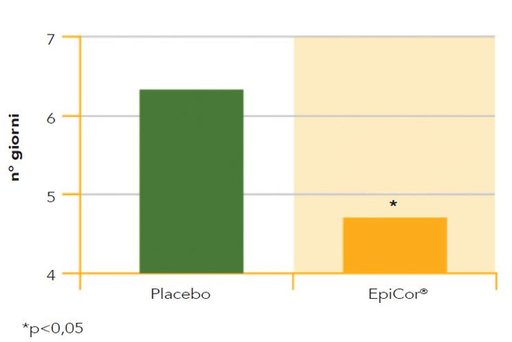

Scheda ingrediente
HYABEST (S) LF-P
Il ”postbiotico” per rafforzare il sistema immunitario

INTRODUZIONE
EpiCor® è un “postbiotico”, un ingrediente naturale ottenuto da fermentazione di Saccharomyces cerevisiae mediante un processo brevettato. Otto dei 15 studi pubblicati su EpiCor® sono trial clinici che confermano nell’uomo i risultati degli studi preclinici, che hanno mostrato una benefica modulazione dei sistemi immunitario e gastro-intestinale.
EpiCor® è un prodotto di fermentazione composto da proteine, fibre, polifenoli, vitamine, amminoacidi, polisaccaridi (compresi beta glucani) e molte altre sostanze nutritive utili, che sinergizzano per rafforzare il sistema immunitario e digestivo per una migliore salute generale. EpiCor® è certificato Kosher, Halal; non contiene GMO, allergeni, BSE/TSE, glutine, ed è indicato per vegani.

Vitamin K2 is a member of the K family of vitamins, whose integral characteristic is the property of activating enzymes that modify certain proteins to allow them to bind calcium. The vitamin K family is divided into vitamin K1 – one molecule (phylloquinone) and vitamin K2 -- a group of molecules (menaquinones).[12,13]
Vitamin K2 is a group of compounds called the menaquinones (1 through 13). It works by activating special proteins that allows the body to properly utilize calcium. One of such proteins is osteocalcin, and another is matrix Gla protein (MGP). The former attracts calcium where it is needed most, namely into bones and teeth. The latter works like a broom by sweeping calcium out of places where it is needed least, namely soft tissues like veins and arteries. Proteins already present in the body need cofactors to be able to function properly. These cofactors are helper molecules like vitamins or minerals. For instance vitamin K2 is the cofactor for an enzyme called vitamin-K-dependent carboxylase. The VKDPs (= vitamin K dependent proteins) are activated by a process called gamma-carboxylation, during which the structure of osteocalcin and MGP is altered by adding another carboxyl group to allow those proteins to bind calcium. In case of vitamin K2 deficiency, they remain “under-carboxylated” or inactive[12,14].
Not all forms of Vitamin K2 are created equal. The two most commonly commercialized forms of Vitamin K2 are menaquinone-4 (MK-4) and menaquinone-7 (MK-7). Due to its side chain, MK-7 has a much longer half-life in the body than MK-4, allowing it greater access to tissues beyond the liver. Further, the serum half-life of MK-4 has been shown to last a few hours compared to a 3+ day half-life for MK-7.
So although they have the same molecular mechanism of action, MK-7 is more bioavailable than MK-4. And due to MK-4’s short half-life and poor bioavailability, it requires multiple doses per day at milligram levels – versus MK-7’s microgram levels – for measurable efficacy.
References:
12. Rheaume-Bleue, Kate. 2013. Vitamin K2 and the Calcium Paradox: How a Little-Known Vitamin Could Save Your Life. Harper; Reprint edition.
13. Howard, Larry M., Payne, Anthony G.. 2006. Health Benefits of Vitamin K2: A Revolutionary Natural Treatment for Heart Disease and Bone Loss. 1st edition. Basic Health Publications, Inc
14. Willems A.G, Vermeer C, Reutelingsperger CPM, Schurgers LJ. 2014. The realm of vitamin K dependent proteins: Shifting from coagulation toward calcification, Mol. Nutr. Food Res. 58, 1620-1635.
MECCANISMO D'AZIONE
Caratteristiche Organolettiche
Aspetto Particelle cristalline, polvere libera
Colore Marrone
Odore Caratteristico tostato, salato
Caratteristiche Chimico-Fisiche
Solubilità igroscopico; parzialmente solubile in acqua
Densità apparente (g/mL) 0,50-0,68
Densità dopo compattazione (g/m) 0,64-0,88
Granulometria(%, attraverso mesh #100) 90
Polifenoli totali (%) ≥3
Umidità (%) ≤8
Attività dell’acqua ≤0,5
Contaminanti: Metalli pesanti (ppm)
Piombo (Pb) <1

COMPOSIZIONE E SPECIFICHE TECNICHE

EFFICACIA
Due studi clinici a 90 giorni, in doppio cieco e controllati con placebo, hanno esaminato gli effetti di EpiCor® sull’incidenza e sulla durata dei sintomi di raffreddore e di influenza. I due studi clinici sono stati condotti congiuntamente, ognuno studiando 116 soggetti sani. In uno studio si sono considerati i soggetti vaccinati per l’influenza (1), mentre nell’altro studio si sono arruolati soggetti non vaccinati (2). Entrambe i trial hanno dimostrato che EpiCor® supporta la risposta immunitaria in modo significativo (P<0,05) riducendo l’incidenza e la durata dei sintomi di raffreddore e influenzali. La Figura 1 riassume i risultati di entrambe le sperimentazioni e mostra la riduzione nei giorni con sintomi.
Un trial clinico umano, crossover randomizzato, in doppio cieco, controllato con placebo, ha esaminato quanto rapidamente EpiCor® agisca sul sistema immunitario. Lo studio è stato condotto su 12 soggetti sani in due giorni di studio, separati da due settimane. I risultati hanno mostrato che EpiCor® inizia a supportare rapidamente la risposta immunitaria, incrementando la protezione antiossidante e l’attivazione delle cellule NK in sole due ore (4).


Numerosi studi clinici umani e diversi studi di sicurezza pubblicati sull’International Journal of Toxicology hanno mostrato che EpiCor® è sicuro per adulti e bambini. La sicurezza di EpiCor® è stata ulteriormente dimostrata dalla conclusione GRAS da parte di un panel di esperti di sicurezza alimentare e dalla New Dietary Ingredient Notification alla FDA statunitense.
SICUREZZA

IMPIEGO E PROCEDURA D’UTILIZZO
EpiCor® può essere utilizzato in diverse applicazioni, sebbene le capsule siano la forma più adeguata. È stabile al calore, parzialmente solubile in acqua ed ha una durata sullo scaffale di tre anni.










